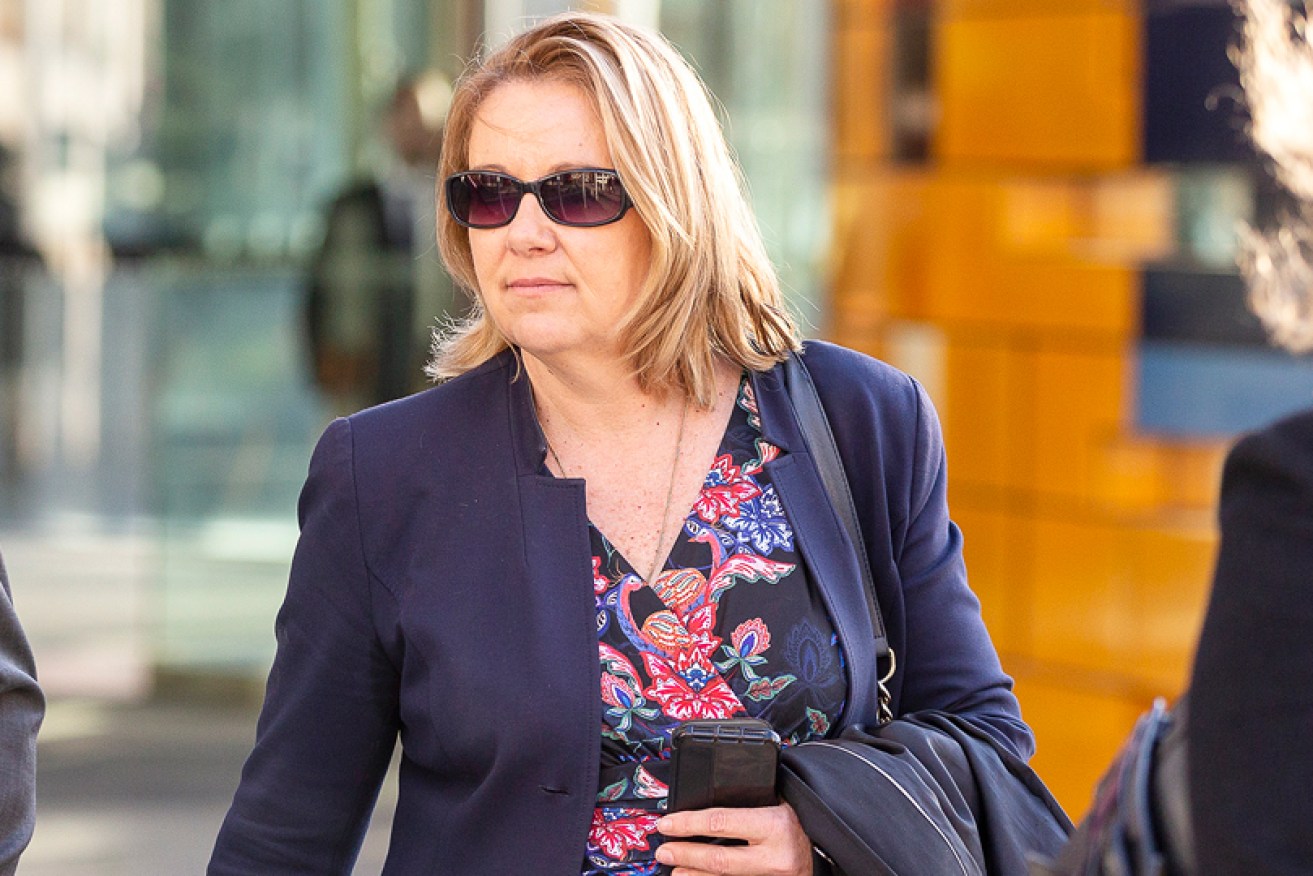CBA broke the law 15,000 times on superannuation fees


Colonial First State executive general manager Linda Elkins leaves the royal commission on Monday. Photo: AAP
Commonwealth Bank’s superannuation arm, Colonial First State, has admitted to breaking the law more than 15,000 times by keeping retirement savers in high-fee accounts.
Evidence to the royal commission on Tuesday showed the bank had retained at least 15,000 clients in high-fee-paying superannuation accounts despite a new law requiring it to move the customers into low-cost MySuper accounts.
The breaches could potentially attract $160 million in fines.
Under the reforms any accounts receiving default contributions (where members had not chosen a fund) should have been paid into MySuper accounts from 2014.
“The breach was in respect of approximately 13,000 [later found to be 15,000] members [who] had made a default contribution into the fund since January 2014 into the MySuper product,” said counsel assisting Michael Hodge QC.
“That’s right,” Colonial First State general manager Linda Elkins agreed.
As a result of the necessity to switch the accounts to MySuper, Colonial feared it could lose tens of millions of dollars in fee income. Evidence tabled at the commission showed that for super accounts moving to pension phase alone, the bank faced a fee reduction of between “$2 million and $10 million”.
Another bank document said margins could fall 2.7 per cent a year or 13.2 per cent over five years.
Colonial had one possibility of retaining the higher costs and commissions on accounts. That was to convince clients to make an investment choice that would transfer them from being default members to choice members who could legally be charged higher commissions.
Ms Elkins admitted to the commission that the bank had effectively tried to mislead customers into thinking they had to make an investment choice on their funds. Evidence for that came up in communications with clients.
One script to be read by telemarketers to clients read: “There has been a recent change in legislation, which requires us to confirm the investment options into which you would like your superannuation contributions paid.”
Mr Hodge put it to Ms Elkins that the statement was trying to mislead clients into thinking they had to make a choice when in fact that would aid the bank by allowing them to stay in a more expensive product.
“That statement … do you regard that as true?” Mr Hodge asked.
“No, it’s not correct,” Ms Elkins replied.
Mr Hodge asked whether the bank had done analysis on the effects on members of changing their accounts to MySuper.
“The product managers had been doing that analysis, but I agree we didn’t share that with members and we should have,” Ms Elkins said.
Colonial submitted a breach notification to APRA on its failure to switch members to MySuper funds. The regulator allowed Colonial time to contact clients and see if they wanted to make a choice. If they didn’t it was allowed to transfer the accounts in five tranches until late in 2015.
Colonial continued to dig in its heels and fight to move clients to ‘choice’ status.
An internal document authored in 2016 years after Colonial made its admissions to APRA described “success” in the following terms: “Contacting client, letting them know that a change is coming to their super which may result in an increase to their ongoing fees, costs and insurance premiums.”
Ms Elkins agreed that the claim of higher fees, for many clients who would move to MySuper, would not be true.
Ms Elkins also said that where adviser commissions are paid on accounts without an adviser, they are paid to Colonial, not members.
That prompted Commissioner Kenneth Hayne to observe, “Am I understanding you to say Colonial hasn’t yet considered how doing that could be in the best interests of members?”
Ms Elkins said the matter was currently being reviewed.








